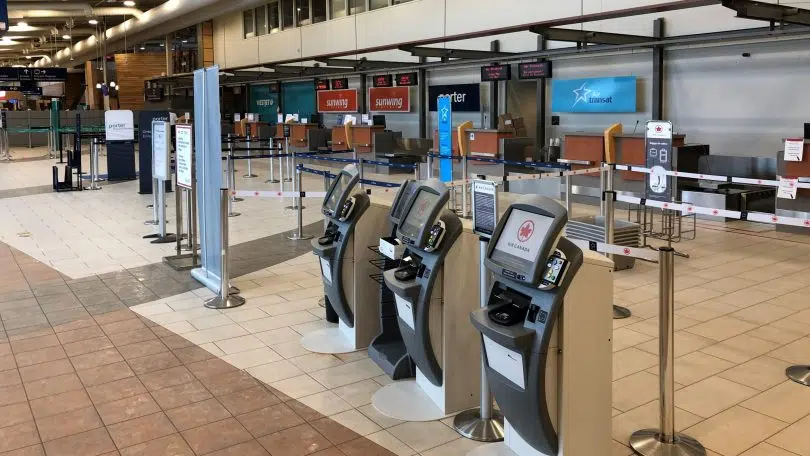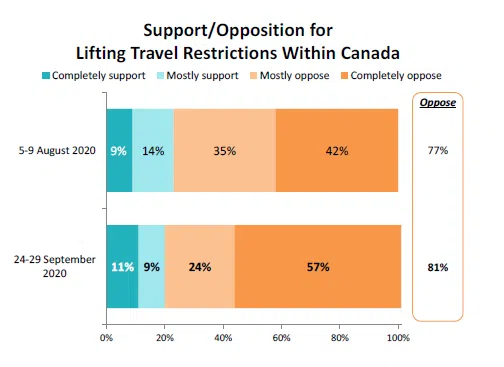
Image: submitted.
Atlantic Canadians have consistently shown they’re overwhelmingly against relaxing travel restrictions for people outside the Atlantic Bubble. And with COVID-19 cases on the rise across Canada, that opposition is only hardening.
New data from Halifax’s Narrative Research shows eight in 10 Atlantic Canadians (81 percent) are against eliminating the 14-day quarantine period for people travelling into Atlantic Canada.
Margaret Chapman is a partner at Narrative and the firm’s chief operating officer.
She says 81 percent of residents against lifting travel restrictions isn’t a huge change from the last time Narrative asked the question, in August. However, the strength of people’s opposition has gone up dramatically.
In August, 77 percent of people said they were against relaxing the Atlantic Bubble: 31 percent were “mostly opposed” and 45 percent were “completely opposed.”
Narrative’s latest data found only 24 percent of people were “mostly opposed” to relaxing the bubble, while a full 57 percent were “mostly opposed.”
“What we saw in this latest study was the strength of the opposition really grew,” Chapman said. “It’s a big increase in polarization.”
Chapman says that polarization is happening because people are frightened by what’s going on in places like Ontario and Quebec and they attribute the relative safety in Atlantic Canada to the Atlantic Bubble.
On Tuesday, Ontario reported 746 additional cases of COVID-19, as well as 807 from Monday, pushing the number of confirmed, active cases in the province to a new record high. Quebec is matching Ontario’s pace, also logging 815 new cases Tuesday.
By contrast, Nova Scotia had zero new COVID-19 cases Tuesday, and only a handful of active cases remain in the province. Certain parts of New Brunswick have recently seen new COVID-19 outbreaks, but Chapman says the spike in cases will likely only further harden people’s opinions against relaxing the bubble.
She says most people’s general perception is that new COVID-19 cases are coming into Atlantic Canada from outside the bubble. Because of that, people will likely continue to support the 14-day quarantine because it feels like a way to manage those cases that are brought in from outside.
“I think people are seeing the quarantine as a really good measure to try and contain outbreaks,” she says. “A lot of people feel a degree of psychological comfort from those restrictions.”
That’s also playing out in other data. Chapman says Narrative’s latest, yet-to-be-released data shows Atlantic Canadians are more willing to eat out now than they were in August.
“That says people are feeling comfortable, right? Because you’re not going to go out to a restaurant if you feel unsafe,” she says.
Chapman says people’s attitudes towards travel restrictions are unlikely to change while COVID1-19 cases continue to pop up in other provinces.
Narrative’s past research has shown the two biggest factors that would make people feel safer relaxing the bubble are lower case numbers across the country and a period of at least two weeks with few to no new cases.
“What people are really looking to as the signals of whether we should make any changes to those travel restrictions is the number of cases in other provinces,” she says. “I think we start to see those spikes, it feels out of control, and they say, keep it as it is because that’s protecting us.”
In a statement released on October 9, Nova Scotia’s chief medical officer of health, Dr. Robert Strang, said there are “no plans to change our border policy at this time.”
He restated the importance of following public health guidelines and said “key measures of physical distancing, gathering limits, hand washing and using a non-medical mask will help keep us safe.”
Trevor Nichols is a reporter with Huddle, an Acadia Broadcasting content partner.







